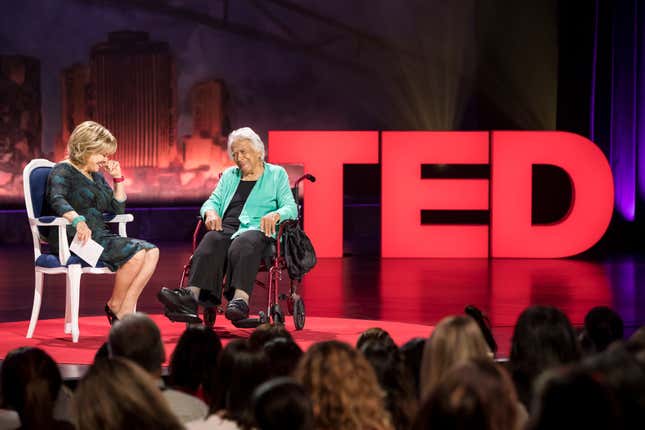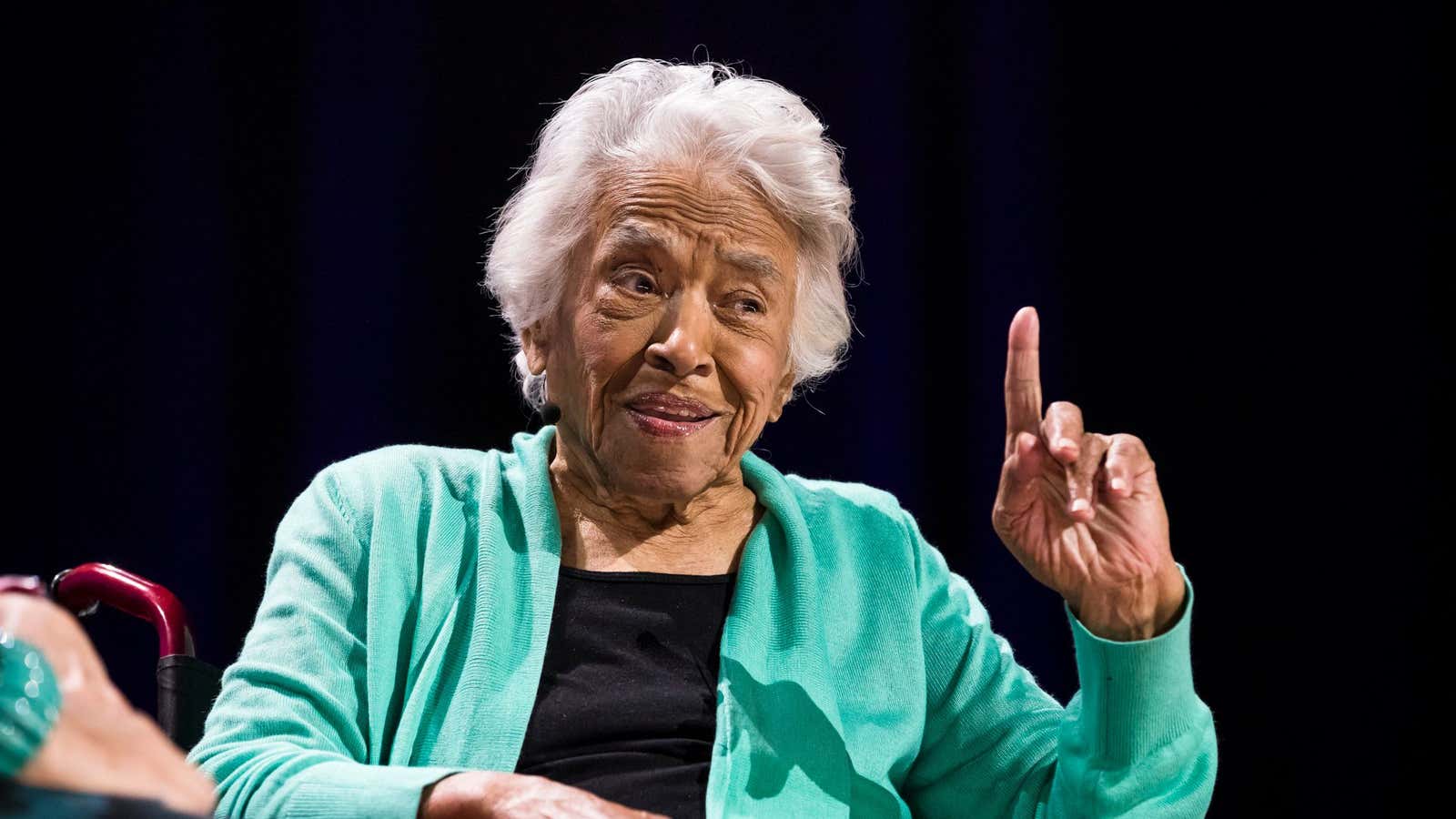Leah Chase knows about upheavals. The 94-year-old chef known as the “queen of Creole cuisine” was a child during the Great Depression and grew up in the racially segregated American South.
For over 70 years, she has been the proprietor of the legendary Dooky Chase’s Restaurant in downtown New Orleans, Louisiana. The family-run restaurant, which remains open today, was among the first establishments in the US to welcome all customers, regardless of their race—years before the US Supreme court reversed the Plessy v. Ferguson law, which upheld segregation under the notion of “separate but equal.”
Dooky Chase was where civil rights leaders like Thurgood Marshall, Reverend A.L. Davis, and later Martin Luther King gathered. It offered a safe haven for civil rights activists and Freedom Riders who dined alongside white policemen who came by for po-boy sandwiches.
“Once you got inside those doors, no one ever bothered you,” said Chase at the TEDWomen conference earlier this month. “I say, we changed the course of America over a bowl of gumbo and some fried chicken.”

At a time when the country is swept up in another divisive crisis—a reckoning over its history and culture of of sexual and gender-based aggression—Chase had some advice for women coming to terms with the men in their lives.
“We were taught that women controlled the behavior of men,” she told the women gathered in New Orleans for the TEDWomen conference. “How you act, they will act.”
Famous for her gumbo and her candor, Chase says that she’s inspired by the accomplished women she has met, but she advised them not to belittle the men in their lives. ”Don’t play this man down,” she cautioned.
“You may have a husband who doesn’t have as much education under his belt as you have, but still you can’t play him down,” she said on stage. “You’ve gotta keep lifting him up because you don’t want to live with a mouse.”
Chase’s message, which came across as a counterpoint to that of journalist Gretchen Carlson, who gave an impassioned TED talk about sexual harassment in the workplace a day earlier, may sound naive or out of synch in a conference dedicated to empowered female voices. After all, she grew up in a generation when women—and people of color—were conditioned to act and dress according to limiting rules.
But at the heart of Chase’s message is finding common ground, just like what she’s built in her restaurant—and the women of TED gave her a standing ovation. Progress, she suggests, involves hard-fought disagreements and resolutions from all sides. “Come together,” she said. “Talk.”
